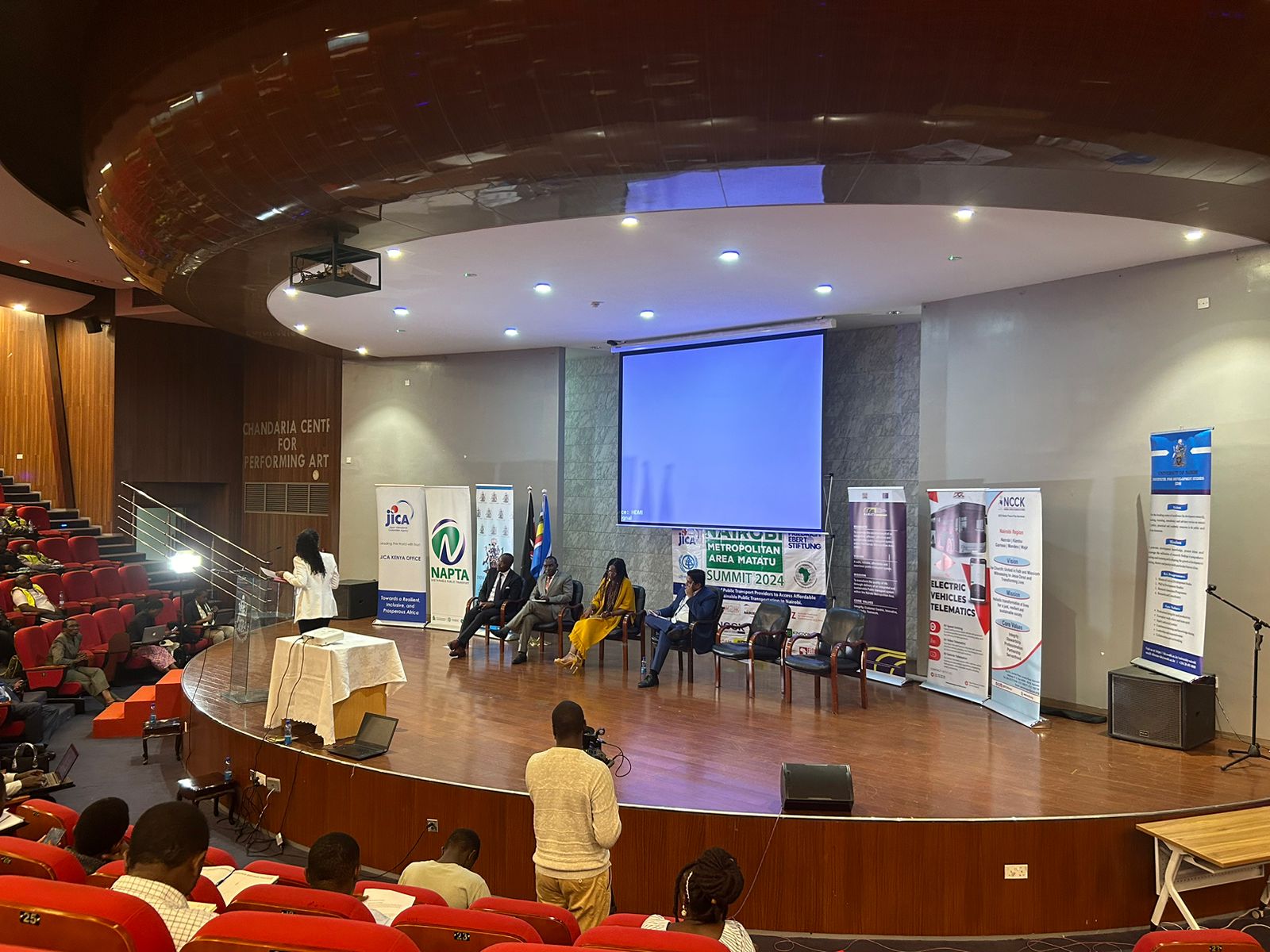

Various stakeholders on Tuesday met in Nairobi for the Nairobi Matatu Summit and Expo.
The summit sought to transform Nairobi's public transport sector to better serve the needs of its diverse and rapidly changing population.
The summit brought together key stakeholders from the government, transport operators, academia, civil society, and other sectors to discuss challenges, opportunities, and solutions for modernising the public transport system in the city.
The goal of the summit was to address the various systemic issues that have long plagued Nairobi's transport sector.
These include traffic congestion, pollution, inefficiency, and a lack of sufficient infrastructure.
The event emphasised the urgency of ensuring the transport system evolves in line with the needs of future generations, particularly Generation Alpha, who will rely on the system as they grow older.
The facilitator, Nairobi Public Transport Alliance (NAPTA) through their CEO Charles Naholi talked about how the alliance is spearheading reforms aimed at making the sector more inclusive, sustainable, and innovative.
NAPTA's vision is to shape public transport policies and regulations that will support the integration of new technologies, such as electric buses, and create a regulatory environment conducive to innovation.
This includes advocating for smart regulations and advanced training programs for public transport operators.
“The importance of collaboration across various stakeholders; government, operators, civil society, and academic institutions, was underscored as essential to creating a cohesive and efficient transport system,” Naholi said.
Stakeholders acknowledged that the transport sector is a significant contributor to Nairobi’s pollution and carbon emissions, hence the need for a greater push towards adopting green technologies.
Electric buses were highlighted as a potential solution.
The delegates discussed strategies to help operators transition to cleaner vehicles without facing an overwhelming financial burden.
This transition is important for improving air quality and reducing the transport sector's environmental impact.
A key focus of the discussions was the economic importance of the matatu industry, which is valued at approximately Sh250 billion.
The matatu industry has been a cornerstone of Nairobi’s public transport system for decades, providing millions of people with affordable mobility.
However, the sector faces significant challenges, particularly in terms of financing.
The high costs of acquiring and maintaining buses, coupled with limited access to affordable financing, have created a system where many operators struggle to modernise their fleets or invest in cleaner technologies.
During the summit, affordable financing was raised as a critical issue.
Edwin Mukabana , an urban planner and manager of Kenya Bus Services pointed out the challenges operators face in securing loans from traditional financial institutions, which often view the matatu sector as a risky investment due to the informal nature of the business and the high risks associated with operating public transport.
“This has led to high interest rates and stringent collateral requirements that make it difficult for operators to access the capital needed to modernise their operations," he said.
To address this, the summit explored the potential for Public-Private Partnerships (PPPs) to create a more favourable financing environment.
“For example, the government could offer subsidies, tax reliefs, or guarantees to make it easier for financial institutions to lend to transport operators,” Mukabana said.
There was a strong emphasis on the need for tailored financial products designed for the public transport sector, recognising its unique challenges and risks.
Another key area of focus at the summit was capacity building within the public transport sector.
Operators often lack formal training in areas such as transport economics, financing, security, land use, and marketing, which limits their ability to optimise their operations.
The summit emphasised the importance of incorporating transport studies into educational curricula, particularly at the university level, to prepare the next generation of transport professionals.
The University of Nairobi played a prominent role at the summit, highlighting its ongoing efforts to contribute to the sector through research and training.
With more than 50,000 students commuting daily, the university is a major consumer of public transport and a key stakeholder in shaping the future of the sector.
The university has been actively involved in capacity building, offering courses and conducting research that will help shape policies and solutions for the transport sector.
The summit tackled the issue of market failures in the public transport sector, including issues like over-saturation, poor competition, and inefficiencies in the way services are structured.
Mukabana highlighted the importance of creating standardised training for public transport operators and the need for long-term career paths in the sector.
One of the primary challenges he highlighted was the over-reliance on informal operators which has led to fragmented services and uncoordinated competition that undermines service quality.
To resolve these challenges, the summit participants called for a better road network plan to optimise the use of Nairobi’s public transport system.
This would include creating dedicated bus lanes, improving infrastructure, and ensuring new investments, such as the Sh70 billion allocated for public transport in Nairobi, are used efficiently.
“The goal is to create a system that is not only more efficient but also more attractive to investors, who are crucial for the long-term sustainability of the sector," Mukabana said.
Many in the sector cited difficulties in obtaining insurance payouts when accidents or vehicle breakdowns occurred, further stressing the financial challenges faced by public transport operators.
“De-risking the industry through better insurance practices and more favourable financial conditions was seen as crucial to attracting investment and ensuring the long-term viability of the sector," he said.



 © The Star 2024. All rights reserved
© The Star 2024. All rights reserved